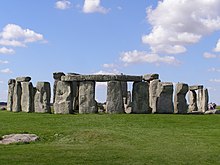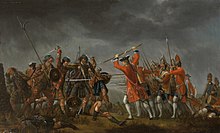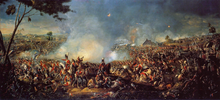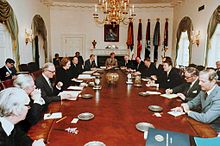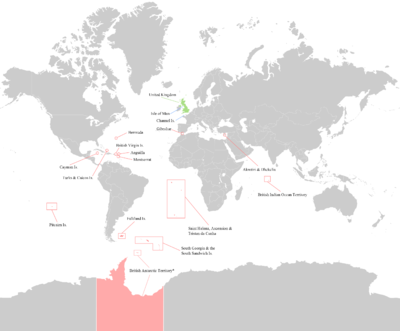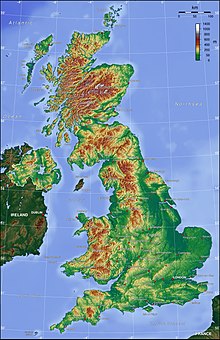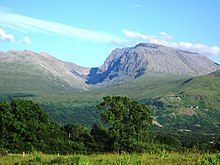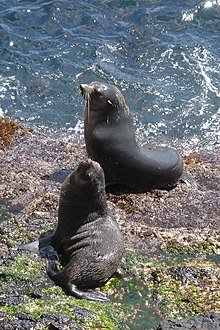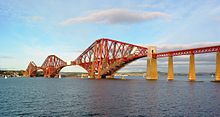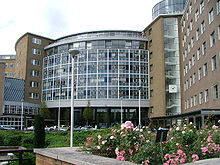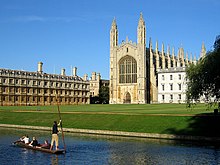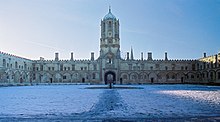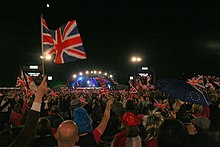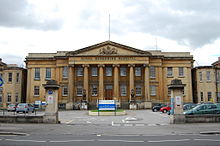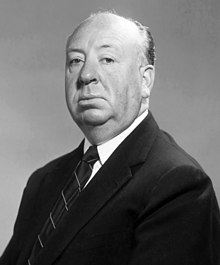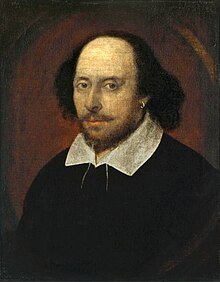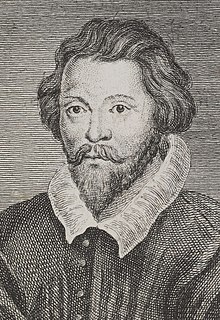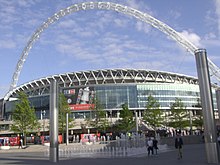United Kingdom
The United Kingdom (in English, United Kingdom), or R for short. U. (UK in English), officially United Kingdom of Great Britain and Northern Ireland (in English, United Kingdom of Great Britain and Northern Ireland), is a sovereign island country located in the northwest of mainland Europe. Its territory is geographically formed by the island of Great Britain, the northeast of the island of Ireland and small adjacent islands. Since the independence of the Republic of Ireland, Northern Ireland has been the only part of the country with a land border, until the inauguration of the Channel Tunnel that links the island of Great Britain with France and the European mainland by land. Great Britain is bordered to the north and west by the Atlantic Ocean, to the east by the North Sea, to the south by the English Channel, and to the west by the Irish Sea.
The United Kingdom is a unitary state comprised of four constituent nations: Scotland, Wales, England and Northern Ireland. It is governed by a parliamentary system with the seat of government and capital in London, but with three devolved national administrations in Edinburgh, Cardiff and Belfast, the capitals of Scotland, Wales and Northern Ireland, respectively. It is a parliamentary monarchy, with Carlos III being the head of state. Colloquially and erroneously it is called Great Britain and England, a consequence of the greater weight of both (territory and kingdom, respectively) within the State. The Channel Islands—Jersey and Guernsey—and the Isle of Man are not part of the United Kingdom, although the British Government is responsible for their defense and international relations.
The United Kingdom has fourteen overseas territories, all of them vestiges of what was the British Empire, which in its international territory came to reach and cover about a fifth of the world's land area. Carlos III continues to be at the head of the Commonwealth of Nations and being head of state of each of the Kingdoms of the Commonwealth.
It is a developed country that by its net volume of gross domestic product is the fifth world economy (by its nominal GDP) and ninth by its PPP GDP. It was the world's first industrialized country and the leading world power during the 19th century and the beginning of the XX (1815-1945), but the economic cost of the two world wars and the decline of their empire in the second part of the century XX diminished their role in international relations. However, it still maintains significant economic, cultural, military, and political influence, and is a nuclear power. It was a member of the European Union between 1973 and 2020, from which it left in the process known as Brexit. It is one of the five permanent members of the United Nations Security Council with the right to veto, member of the G7, the G-20, NATO, the OECD, the UKUSA, the Commonwealth of Nations and the Common Travel Area.
Etymology
The official name of the country is the United Kingdom of Great Britain and Northern Ireland (in English, United Kingdom of Great Britain and Northern Ireland), with the United Kingdom or UK being most commonly used abbreviated forms. The name was first proposed in the Act of Union of 1707, in which the kingdoms of England and Wales decided to form a new kingdom together with Scotland, which would be called the United Kingdom of Great Britain (United Kingdom of Great Britain). Later, with the Act of Union of 1800, the island of Ireland became part of the country, so the name changed a United Kingdom of Great Britain and Ireland (United Kingdom of Great Britain and Ireland). In 1927, the country got its present name United Kingdom of Great Britain and Northern Ireland. (Southern Ireland became the Irish Free State when it officially gained independent self-government in 1922 and full independence with the Westminster Charter of 1931.)
It is frequently called by the name of the island that comprises most of its territory, Great Britain, or also, by extension, by the name of one of its constituent countries, England. The demonym of the United Kingdom, as well as that of the island of Great Britain, is British, although also, by extension, the demonym English is often used in ordinary speech.
Although the United Kingdom, as a sovereign state, is a country, England, Scotland, Wales, and to a lesser extent, Northern Ireland, are also considered to be "the countries" (in its original language it is country, since in Spanish it receives the name of constituent country or constituent nation, not applying that case), despite the fact that they are not sovereign States. The website of the first British minister has used the expression "countries within a country" to describe the United Kingdom.
Some statistical summaries also refer to the constituent countries of England, Scotland and Wales as "regions", while Northern Ireland is referred to as a "province".
History
Before 1707
The first settlement by anatomically modern humans in the present territory of the United Kingdom occurred in waves approximately 30,000 years ago. Insular Celtic, which includes the Britons and Gaelic Ireland. The Roman conquest, begun in the year 43, subjected the south of the island to being a province of the empire for four centuries. This was followed by a series of invasions led by different Germanic peoples - Angles, Saxons and Jutes - which reduced the British area towards what would become the present territory of Wales, Cornwall and the historic Kingdom of Strathclyde. part of the region settled by the Anglo-Saxons was unified into the Kingdom of England in the X century. At the same time, the Gaelic-speakers in North West Britain—with connections to North East Ireland and traditionally assumed to have migrated from there in the V— joined with the Picts to create the so-called Kingdom of Scotland in the IX century.
In 1066, the Normans invaded England from France and after their conquest, seized power over large parts of Wales, Ireland, and were invited to settle in Scotland, introducing each country's feudalism to the French model and Norman culture. The Norman elite greatly influenced but assimilated with each of the local cultures. Consequently, medieval English kings conquered Wales and made an unsuccessful attempt to annex Scotland to their territory. After the Declaration of Arbroath, Scotland maintained its sovereign status, despite constant tensions with England. The English monarchs, due to the inheritance they possessed over territories in France and due to claims to the French crown, had several conflicts in France, the most notable of which was the Hundred Years' War. In it, Scotland was allied with France and ended in 1453, with the English withdrawal from French lands.
The Modern Age was marked by religious conflicts around the Protestant Reformation, where the introduction of state Protestant churches in each country took place thereafter. Wales was fully incorporated into the Kingdom of England, and Ireland was constituted as a kingdom in personal union with the English crown. Within present-day Northern Ireland, the lands of independent Gaelic Catholic gentry were confiscated and given to Protestant settlers from England and Scotland.
In 1603, James VI of Scotland inherited the crown of England and Ireland, uniting the three kingdoms, and moved his court from Edinburgh to London; however, each country remained an independent political entity, while retaining its separate political, legal, and religious institutions.
In the mid-17th century century, the three kingdoms were involved in a series of wars—including the English Civil War— which led to the temporary overthrow of the monarchy and the establishment of a unitary republic of the Commonwealth of England, Scotland and Ireland. Over the centuries XVII and XVIII, acts of piracy (corsairs) of the British fleet were reported, attacking and robbing ships of the European and Caribbean coasts.
Despite the restoration of the monarchy in 1660, the interregnum ensured, after the Glorious Revolution (1688) and the 1689 Bill of Rights and the Bill of Rights, that unlike other European countries, royal absolutism would not prevail, and that a professed Catholic could never accede to the throne. The British constitution would develop on the basis of a constitutional monarchy and a parliamentary system. With the founding of the Royal Society in 1660, the study of science increased markedly. During this period, particularly in England, the development of the English navy (within the context of the so-called "Age of Discoveries") led to the acquisition and liquidation of overseas colonies, particularly in North America.
After the Act of Union of 1707
On May 1, 1707, the United Kingdom of Great Britain was created through the political union between the Kingdom of England (of which Wales was a part) and the Kingdom of Scotland. This event was the result of the Treaty of Union signed on July 22, 1706 and ratified by the English and Scottish parliaments to create the Act of Union of 1707. Almost a century later, the Kingdom of Ireland, under English rule since 1691, united with the Kingdom of Great Britain to form the United Kingdom of Great Britain and Ireland, as stipulated in the Act of Union of 1800. Although England and Scotland had been separate states before 1707, they had remained in a personal union since 1603, when the Union of the Crowns took place.
In its first century of existence, the country played an important role in the development of Western ideas about the parliamentary system, as well as making significant contributions to literature, the arts, and science. by the United Kingdom, transformed the country and sustained the growing British Empire. During this time, like other powers, it was involved in colonial exploitation, including the Atlantic slave trade, although with the passage of the Slave Act in 1807, the country was one of the pioneers in the fight against slavery. slavery.
Heyday of the British Empire
After the defeat of Napoleon Bonaparte in the Napoleonic Wars, the nation emerged as the leading naval and economic power of the 19th century and remained an eminent power until the 20th century. The capital, London, was the largest city in the world from 1831 to 1925. The British Empire reached its greatest extent in 1921, when after World War I the League of Nations granted it mandate over the former German colonies and Ottoman possessions, the latter as part of the partition of the Ottoman Empire. A year later, the British Broadcasting Company was created, which later became the British Broadcasting Corporation (BBC), the world's first large-scale broadcaster.
World Wars
In 1921, internal conflicts in Ireland over demands for Irish Home Rule finally led to the partition of the island. At the same time, Sinn Féin's victory in the 1918 general election, followed by a war of independence, led to the creation of the Irish Free State; Northern Ireland chose to remain part of the United Kingdom. As a result, in 1927 the formal name of the United Kingdom of Great Britain and Ireland changed to its current name, the United Kingdom of Great Britain and Northern Ireland. The Great Depression broke out at a time when the country was still far from recovering from the effects of World War I.
The United Kingdom was part of the United States, the Soviet Union and France among the allies of World War II. Following the defeat of their European allies in the first year of the war, the British Army continued the fight against Germany in an air campaign known as the Battle of Britain. After the victory, the country was one of the three great powers that met to plan the post-war world. World War II left the national economy damaged. However, thanks to the help of the Marshall plan and expensive loans obtained from the United States and Canada, the nation began on the road to recovery.
Since 1945
The immediate postwar years saw the establishment of the welfare state, including one of the world's first and largest public health services. Changes in government policy also drew people from across the Commonwealth, giving birth to a multicultural state. Despite the fact that the new limits of the British political role were confirmed by the Suez Crisis of 1956, the international spread of the English language meant the permanent influence of its literature and its culture, while since the 1960s, its popular culture has also began to have great influence abroad.
Following a period of global economic slowdown and industrial strife in the 1970s, the next decade saw a substantial influx of revenue from the sale of North Sea oil and economic growth. Margaret Thatcher's tenure marked a significant change in the direction of the postwar political and economic consensus; a path followed since 1997 by the Labor governments of Tony Blair and Gordon Brown. In 1982, there was a brief war against Argentina in the Falklands that ended in a British victory. In the 1980s there were several tragedies in football stadiums caused, among other reasons, by the heyday of the hooligan phenomenon, such as the Heysel Tragedy, the Valley Parade Tragedy and the Hillsborough Tragedy. In 1988, the Piper Alpha oil rig in the North Sea exploded, killing 167 people. That same year, the bloodiest terrorist attack committed in Europe took place, when a bomb exploded inside Pan Am Flight 103, killing 270 people.
The United Kingdom was one of the twelve founding members of the European Union at its inception in 1992 with the signing of the Maastricht Treaty. Previously, since 1973 it had been a member of the forerunner of the European Union, the European Economic Community (EEC). The turn of the XX century saw major changes in British government, with the establishment of devolved devolved administrations for Northern Ireland, Scotland and Wales.
On September 16, 1992, the episode called "Black Wednesday" when some financial speculators, among others, George Soros, bet against the pound sterling, causing multimillion-dollar losses to the English state, the collapse of the Bank of England and forcing it to withdraw from the European Currency Exchange Mechanism.
In 1997 the UK transferred sovereignty of Hong Kong to China. That same year the death of Diana of Wales in a car accident shocked the entire country. In 1998, after almost two years of negotiations, the Good Friday agreement was signed. For said agreement, then US President Bill Clinton acted as mediator, consummating the peace process in Northern Ireland and ceasefire of the IRA terrorist group, putting an end to the conflict in Northern Ireland (called by the English The Troubles that is, The Problems).
Foreign policy during Tony Blair's government (1997-2007) was closely aligned with the United States. Following the United Kingdom's participation in Operation Enduring Freedom in Afghanistan, which began in 2001, Blair took part in the Azores summit in 2003 where the decision was made to issue a 24-hour ultimatum to the Iraqi regime headed by Saddam Hussein to disarm. This ultimatum eventually led to the invasion of Iraq (Operation Iraqi Freedom) in 2003.
Islamic terrorism struck London on July 7, 2005, killing 56 and injuring more than 700, the day after London was chosen to host the London 2012 Olympic Games.
The financial crisis of 2008 severely affected the British economy. Two years later, Gordon Brown's Labor lose the election and the Conservative government headed by David Cameron rises, which introduced new austerity measures aimed at dealing with the substantial public deficits that occurred during the crisis period. the Scottish Government held a referendum for the independence of Scotland in September of that year, the independence proposal being rejected with 55% of the votes. On September 9, 2015, Queen Elizabeth II became the monarch with the longest reign in the country, thus having surpassed his own great-great-grandmother, Queen Victoria I.
In June 2016, a referendum was held on the United Kingdom's permanence in the European Union with 51.9% of votes in favor of leaving the European entity, a process that could take up to two years and which officially began on March 29, 2017. As part of the anti-jihadist coalition in the war against the Islamic State, the United Kingdom was hit again that year by terrorism in cities such as London and Manchester.
On January 1, 2020, Brexit, the United Kingdom's departure from the European Union, became effective. On September 8, 2022, Queen Elizabeth II died, becoming King Charles III.
Government and politics
The United Kingdom is a parliamentary monarchy whose head of state is Charles III. Likewise, he is the head of state of the fifteen countries that, within the framework of the Commonwealth of Nations, constitute independent monarchies, placing the United Kingdom in a personal union with those nations. The king has sovereignty over the Crown dependencies, the Isle of Man, and the bailiwicks of Jersey and Guernsey. These are not part of the United Kingdom, although the British Government manages its foreign relations and defence, plus Parliament has the authority to legislate on its behalf.
The United Kingdom does not have a document that serves as a fully defined constitution, something that only occurs in two other countries in the world, Israel and New Zealand. The constitution of the United Kingdom, therefore, consists mainly of a collection from different written sources, including laws, statutes, jurisprudence and international treaties. Since there is no technical difference between ordinary statutes and "constitutional law", parliament can make a "constitutional reform" by the simple fact of passing a law, and consequently, has the power to change or delete almost any written or unwritten element of the constitution. However, there are certain limitations to the passage of laws, for example, no legislature can create laws that cannot be changed in the future.
The United Kingdom has a parliamentary government, based on the Westminster system, which has been emulated around the world, one of the legacies of the British Empire. The UK Parliament, which meets in the Palace of Westminster, has two houses: the House of Commons (elected by the people) and the House of Lords. Any law passed by parliament requires royal assent to become law. The fact that the decentralized parliament in Scotland and the assemblies in Northern Ireland and Wales are not sovereign bodies and can be abolished by the British Parliament, makes the latter the most important legislative body in the country.
The position of the UK's head of government, the Prime Minister, is held by the member of parliament who gets the most votes in the House of Commons, usually the leader of the political party with the most seats in the House of Commons. said camera. The prime minister and cabinet are appointed by the monarch to form "Her Majesty's Government," although the prime minister chooses the Council of Ministers, and by convention, the monarch respects his choice..
Traditionally, the cabinet is made up of members of the prime minister's party from both houses of the legislature, mostly from the House of Commons. The executive power is exercised at the political administrative level by the prime minister and the cabinet, who take their oath before the king and the latter being part of the Privy Council, in such a way that they become Ministers of the Crown. In the 2010 election, Conservative Party leader David Cameron ended Labor's thirteen-year rule and assumed the role of Prime Minister. Cameron was able to repeat this success in the 2015 general election, where the Conservative Party obtained an absolute majority.
General elections are called by the monarch. Although there is no minimum term for serving in parliament, the Parliament Act 1911 requires that a new election must be called within five years of the previous election. Previously, for House of Commons elections, the national territory was divided into 646 constituencies, with 529 in England, 18 in Northern Ireland, 59 in Scotland and 40 in Wales; this number increased to 650 in the elections. elections in 2010. Each constituency elects a member of parliament by simple majority.
The Conservative Party, the Labor Party and the Scottish National Party (which stands only in Scotland), are the main political parties; in the 2015 general election they won 619 of the 650 available seats in the House of Commons. Most of the remaining seats were won by parties that, like the Scottish National Party, only compete in part of the country, such as the Party of Wales (Wales only), the Democratic Unionist Party, the Social Democratic and Labor Party, the Ulster Unionist Party and Sinn Féin (Northern Ireland only, although Sinn Féin also contests elections in Ireland), as well as the Liberal Democrats (both of whom run nationally and won 8 seats). For elections to the European Parliament, the United Kingdom currently has 72 MPs elected by bloc vote. Doubts about the true sovereignty of each constituent nation arose after the United Kingdom's accession to the European Union.
The country does not have a single legal system, as it was created by the political union of the formerly independent countries and Article 19 of the 1707 Treaty of Union guarantees the separate existence of the Scottish legal system. Today, the country has three different legal systems: the law of England, the law of Northern Ireland and the law of Scotland. In October 2009, recent constitutional changes brought about the creation of a new Supreme Court to take over the appellate functions of the House of Lords Appeal Committee. The Judicial Committee of the Privy Council is the highest court of appeal. high for several independent Commonwealth countries, Overseas Territories and British Crown Dependencies.
Foreign Relations
The United Kingdom belongs to several international organizations such as the United Nations, the Commonwealth of Nations, the G-8, the G-7, the G-20, the North Atlantic Treaty Organization, the Organization for Economic Cooperation and Development, the World Trade Organization, the Council of Europe, the Organization for Security and Cooperation in Europe. It is also one of the permanent members of the United Nations Security Council with the right of veto. It definitively left the European Union on January 31, 2020, which made it its external border. This process, popularly known as Brexit, was scheduled to end in May 2019. However, due to successive extensions throughout the year, due to a lack of agreement in the British Parliament, it was effective at the beginning of 2020.
The most notable alliance between the UK and another country is their "special relationship" with the United States, although it also maintains close relations with several members of the European Union, NATO, the Commonwealth and other powerful countries such as Japan. Britain's global presence and influence is further amplified through its trade relationships, its official development assistance, and its armed forces, which maintain nearly eighty military installations and other deployments around the world.
Armed Forces
The British Army, Royal Navy and Royal Air Force are collectively known as the British Armed Forces. The three forces are administered by the Ministry of Defense and controlled by the Defense Council, chaired by the Secretary of State for Defence. British troops are some of the best trained, as well as being the most technologically advanced. According to various sources, including the Ministry of Defence, the UK has the third or fourth highest budget for military spending internationally, despite having only the 25th largest army in terms of personnel. Currently, total defense spending represents 2.5% of GDP.
The Royal Navy is a blue water fleet, one of three surviving, along with the French National Navy and the United States Navy. On 3 July 2008, the Ministry of Defense signed several agreements with worth £3.2 million to build two new aircraft carriers. The UK is one of five countries (along with the US, China, Russia and France) that may be in possession of nuclear weapons, using a Vanguard-class submarine, which has the Trident II D5 ballistic missile system.
Among the main functions of the British Armed Forces are the protection and defense of the United Kingdom and its Overseas Territories, the promotion of global security interests and the support of international peacekeeping efforts. In addition, they are active and regular participants in NATO, the UN and other international organizations that seek the peaceful resolution of conflicts. There are various overseas garrisons and British Army installations around the world, mainly on Ascension Island, Belize, Brunei, Canada, Diego Garcia, the Falkland/Malvinas Islands, Germany, Gibraltar, Kenya, Cyprus and Qatar.
In 2010, the British Army reported that it had 197,840 militants. In addition, there are the corps of the United Kingdom Special Forces, the Reserve Forces and the Royal Relief Forces. This brings the number of soldiers to 435,500, including active and reserve personnel. Despite the UK's military capabilities, recent policy on defense issues assumes that "the most demanding operations" they could be carried out as part of a coalition. Leaving aside the intervention in Sierra Leone, operations in Bosnia and Herzegovina, Kosovo, Afghanistan and Iraq can be taken as precedents for this policy. In fact, the last war in which the British Army fought on its own was during the Falklands War in 1982, in which it defeated the Argentine Army.
Human rights
In terms of human rights, regarding membership of the seven bodies of the International Bill of Human Rights, which include the Human Rights Committee (HRC), the United Kingdom has signed or ratified:
Territorial organization
The territorial organization of the United Kingdom is complex and very varied, since each constituent country has its own system of geographical and administrative demarcation with origins prior to the union between them. Consequently, there is "no administrative unit in common between the members of the United Kingdom". few changes to these administrations, but since then there has been a steady evolution of their role and function. The change did not occur uniformly across the constituent nations, and the devolution of power over local administration to Scotland, Wales and Northern Ireland, makes it unlikely that future administrative changes will be uniform.
The organization of local government in England is complex, as the distribution of functions varies according to local arrangements. Local legislation is carried out by the British Parliament and the UK government, because England does not have a decentralized parliament. The top tier of England's subdivisions are the nine regional offices of government. Since 2000, the London region has had an elected assembly and a mayor, following strong support for the proposal in the 1998 London referendum. It was intended that the other regions would also have their own regional assembly, but rejection of this idea in a 2004 referendum in the North East of England halted reform. Below the region level, London conforms by 32 municipalities and the rest of England has district councils and councils or unitary authorities. The councilors are elected by direct suffrage, by simple vote or by block.
Scotland's local government is divided into 32 council areas, which vary widely in both size and population. The cities of Glasgow, Edinburgh, Aberdeen and Dundee are special council areas, as is the Highland council area, which includes a third of the land area of Scotland, but only just over 200,000 people. The power vested in local authorities is administered by elected councillors, currently numbering 1,222. Elections are held by single transferable vote, through block elections of three or four councillors. Each Council elects an Administrator or General Coordinator to preside over Council meetings and to act as the zone representative. Councilors are subject to a code of conduct imposed by the Standards Commission for Scotland. The representative organization for local officials is the Convention of Scottish Local Authorities (COSLA).
Since 1973, local government in Northern Ireland has been organized into 26 district councils, where single transferable vote elections are held, to elect representatives with powers limited to services such as refuse collection and maintenance of parks and public places. However, on March 13, 2008, the executive branch proposed the creation of eleven new councils to replace the current system and the next local elections will be postponed until 2011 to facilitate this process.
Finally, local government in Wales consists of 22 unitary authorities, including the cities of Cardiff, Swansea and Newport, which are independent unitary authorities. Elections are held every four years by direct suffrage. The Government Association Local for Wales represents the interests of Welsh local authorities.
Overseas Territories and Crown Dependencies
The British Overseas Territories are fourteen territories dependent on the United Kingdom, but not part of it. Mainly, these are small, sparsely populated islands that represent the vestiges of the former British Empire. Together, they represent an area exceeding 1,728,000 km² and a population of approximately 260,000 people. However, the largest of them (1,709,400 km², equivalent to 98.9% of the overseas territories) is the British Antarctic Territory, which is only recognized by four other countries, while most signatories to the Antarctic Treaty do not recognize British sovereignty over that territory and treat it only as a British claim, while two other signatory countries, Chile and Argentina, have their own claims. The Antarctic territory claimed by the United Kingdom partially overlaps with the area claimed by Chile (Chilean Antarctic Territory) and totally with that claimed by Argentina (Argentine Antarctica), to the point that this disagreement led to diplomatic tensions, pressures and incidents (such as the Deception Island or Bahía Esperanza) in years prior to the signing of the treaty, which postpones the resolution of the matter.
The British Crown Dependencies are three territories that are semi-dependent on the monarch of the United Kingdom, but are also not part of the country. Unlike the overseas territories, legislation and other matters of local interest correspond to a local legislative assembly; In addition, international treaties and national regulations are only applied if this assembly approves them. These dependencies occupy about 779 km² and have a population of more than 235,700 inhabitants.
- British Overseas Territories
- Acrotiri and Dhekelia
- Anguilla
- Bermuda
- Gibraltar
- Cayman Islands
- Pitcairn Islands
- Turks and Caicos Islands
- British Virgin Islands
- Montserrat
- St. Helena, Ascension and Tristan of Acuña
- British Antarctic Territory
- British Indian Ocean Territory
- British Overseas Territory of the South Georgia Islands and South Sandwich Islands
- Falkland Islands (British Overseas Territory)
- British Crown Unit
- Guernsey
- Isle of Man
- Jersey
Geography
The United Kingdom is 244,820 km² in area, comprising the island of Great Britain and the north-eastern part of the island of Ireland (Northern Ireland) and other smaller islands. The country lies between the ocean Atlantic and the North Sea, 35 kilometers from the northwest coast of France, from which it is separated by the English Channel.
Great Britain lies between latitudes 49° and 59° N (the Shetland Islands extend almost to 61° N) and longitudes 8° W to 2° E. The Greenwich Observatory in London is the definition point for the Greenwich meridian. When measured directly from north to south, Great Britain measures just over 1,100 kilometers in length and just under 500 kilometers at its widest. However, the greatest distance between any two points on the island is 1350 kilometers between the end of the land in Cornwall (near Penzance) and John o' Groats in Caithness (near Thurso). Northern Ireland shares a 443 km land border with the Republic of Ireland.
England accounts for just over half the total land area of the United Kingdom, with a surface area of 130,410 square kilometres. Most of the country consists of lowlands, with some hilly terrain in the north-west, where the Tees-Exe line meets, between the Cumbrian Highlands and the Pennine Mountains. The highest mountain in the region is Scafell Pike (978 m a.s.l.) and is located within this zone. The major rivers and estuaries in England are the Thames, the Severn, and the Humber.
Scotland accounts for less than a third of the total area of the United Kingdom, covering 78,772 square kilometres; this figure includes the nearly 800 islands, most of which lie to the west and north of Great Britain, notably the Hebrides, the Orkney Islands and the Shetland Islands. The topography of Scotland is distinguished by the Highland Fault, which runs through the Scottish territory from Helensburgh to Stonehaven. The fault separates the two main Scottish regions: the northern and western highlands and the southern and eastern lowlands. The highland region contains most of Scotland's mountains, including Ben Nevis, which at 1,343 m s. no. m, is the highest point in the British Isles. The lowlands, especially the narrow strip of land between the Firths of Clyde and the Firth of Forth known as the 'Middle Belt', are flatter. and they are home to the majority of Scottish communities, including Glasgow, the largest city in the region, and Edinburgh, the capital and political center of the country.
Wales occupies less than a tenth of the total area of the United Kingdom, covering only 20,758 square kilometres. Wales is mainly mountainous, although the southern part is less mountainous than the north and the center. For this reason, the main industrial areas are in South Wales, made up of the coastal cities of Cardiff, Swansea and Newport. The highest mountains are Snowdonia, where the highest peak in the region is located: Snowdon at 1085 m s. no. m.. The fourteen (or fifteen) highest mountains in Wales exceed 914.4 meters (3,000 ft) and are commonly known as the "Wales 3000's". extend in front of more than 1,200 km of coastline, the largest of which is Anglesey (Ynys Môn), located in the northwest of the country.
Northern Ireland covers only 14,160 square kilometers and its territory is mostly mountainous. It is separated from the British Isle by the Irish Sea and the North Channel. The highest peak in this region is Slieve Donard at 849 m a.s.l. no. m., located in the mountains of Morne. In Northern Ireland lies Lough Neagh, which at about 388 square kilometres, is the largest body of water in the United Kingdom.
Climate
The UK has a temperate climate and an oceanic climate with abundant rainfall throughout the year. The temperature varies with the seasons, but rarely falls below -10 °C, or rises above 35 °C The prevailing wind comes from the southwest, bringing with it humid and warm weather from the Atlantic Ocean. The eastern part is more protected from this wind and therefore has a drier climate. The Atlantic currents, warmed by the Gulf Stream, mean that winters are not as severe, especially in the west, where winters are wet. Summers are warmest in the south-east of England, being the part closest to the European mainland, and cooler further north. Snowfall occurs during winter and spring, although heavy snowfall rarely falls in the lowlands.
| Month | Ene. | Feb. | Mar. | Open up. | May. | Jun. | Jul. | Ago. | Sep. | Oct. | Nov. | Dec. | Annual |
|---|---|---|---|---|---|---|---|---|---|---|---|---|---|
| Average temperature (°C) | 6.7 | 7.1 | 9.9 | 12.6 | 16.3 | 19.6 | 21.7 | 21.4 | 18.8 | 15 | 10.1 | 7.7 | 13.9 |
| Temp. medium (°C) | 0.4 | 0.5 | 1.5 | 3.4 | 6.3 | 9.3 | 11.3 | 10.9 | 8.8 | 6.4 | 2.8 | 1.3 | 5.2 |
| Total precipitation (mm) | 78 | 51 | 61 | 54 | 55 | 57 | 45 | 56 | 68 | 73 | 77 | 79 | 754 |
| Hours of sun | 279 | 280 | 372 | 420 | 465 | 510 | 496 | 465 | 390 | 341 | 270 | 248 | 4536 |
| Relative humidity (%) | 81 | 76 | 69 | 64 | 62 | 60 | 60 | 62 | 67 | 73 | 78 | 82 | 69.5 |
| [chuckles]required] | |||||||||||||
Effects of climate change
In the UK, as a result of climate change, there is a trend towards warmer winters and hotter summers, the sea level at the UK coast is rising by about 3mm each year and there are signs of a change in the patterns of precipitation. Climate scientists expect heatwaves, such as those of 2003, to become the norm in the 2040s as a result of the climate crisis. 2019 model calculations show London would be relocated to another climate zone if scenario RCP4.5 occurs. The climate in London in 2050 is more like the previous climate in Barcelona than the previous climate in London. Even extreme weather events are becoming more frequent and intense. It has been shown that the 2013-2014 floods in England can be traced back to man-made climate change.
Flora and fauna
Most of Great Britain has a temperate climate receiving high levels of rainfall and medium levels of sunshine. To the north, the climate becomes colder and coniferous forests largely replace the deciduous species of the southern forests.
There are some variations in the British climate, with some areas having subarctic conditions such as the Scottish Highlands and Teesdale, and even subtropical in the Isles of Scilly. Seasonal changes that occur throughout the archipelago condition plants to cope with changes in levels of sunlight, precipitation, and temperature, as well as the risk of snow and frost during winter.
Within the island there are several ecosystems such as temperate forests, swamps, marshes, etc. Oak, elm, beech, ash, pine and birch are some of the most common trees within British woodlands. Previously, the British Isles were dotted with deciduous and coniferous forests, but for the most part In the 2000s, only about 10% of the national territory was covered by forest, concentrated in the north-east of Scotland and the south-east of England, due in large part to uncontrolled logging and urban growth. urban areas are mainly covered by grasses and flowering plants
The island of Great Britain, along with the rest of the archipelago known as the British Isles, is home to a fauna typical of a temperate oceanic climate, not very diverse when compared worldwide and similar to that of other Northern European countries.
The most abundant mammals in the country include foxes, rabbits, deer, hedgehogs, mice, weasels, and shrews. Like other islands located at similar latitudes, specimens of reptiles and amphibians are scarce. More than 21,000 species of insects and nearly 230 species of birds have been discovered in the national territory, some of which are threatened by hunting and habitat destruction. Major British rivers, such as the River Thames, are the main source of water for the fauna of local ecosystems, as well as being the habitat of various species of fish and waterfowl.
Biodiversity decreased severely during the last ice age, and in a short time (in geological terms) it was separated from the continent by the formation of the English Channel.
Man has persecuted the larger species that interfered with his activities (the wolf, the brown bear and the wild boar) to their extinction on the island, although of course domesticated forms such as the dog and the pig. The wild boar was later reintroduced.
Since the mid-18th century, Britain has undergone extensive industrialization and increased urbanization. A DEFRA study published in 2006 suggested that 100 species of animals have gone extinct in the UK during the 20th century, which which is about 100 times the background extinction rate. This has had a major impact on native animal populations, particularly passerines, which are becoming increasingly rare. Habitat loss has mainly affected larger mammal species. However, some species have adapted to the expanding urban environment, notably the fox, the rat, and other animals such as the wood pigeon.
Economy
The UK economy is made up (in descending order of size) of the economies of England, Scotland, Wales and Northern Ireland. Based on market exchange rates, the UK is the fifth largest economy in the world and the second largest in Europe after Germany, ahead of France.
The Industrial Revolution began in the United Kingdom, in a process where there was a great concentration of heavy industries throughout the country, such as shipbuilding, coal mining, steel production and the textile industry. The expansion of the Empire created a huge foreign market for British goods, allowing the nation to dominate international trade in the 19th century. Later, as happened to other industrialized economies, along with the economic decline after the two world wars, the UK began to lose its competitive advantage and heavy industry declined. Although manufacturing is still an important part of the economy, in 2003 it only accounted for one sixth of the country's revenue.
The automobile industry is an important part of the manufacturing sector, although it has declined with the collapse of the MG Rover Group and now most of the industry is foreign owned. Civil and defense aircraft production is led by BAE Systems, the world's largest defense contractor, and by the European firm EADS, the owner of Airbus. Rolls-Royce has a significant share of the world market for aerospace engines. The chemical and pharmaceutical industries are important in the United Kingdom, with the British companies GlaxoSmithKline and AstraZeneca being the second and sixth largest pharmaceutical companies in the world, respectively.
However, during the last decades the tertiary sector increased considerably and now produces about 73% of GDP. The service sector is dominated by financial services, especially banks and insurance companies. This makes London the largest financial center in the world, as the headquarters of the London Stock Exchange, the London International Financial Futures and Options Exchange and Lloyd's of London are located here; in addition to being the leader of the three "command centers" of the world economy (along with New York and Tokyo). In addition, it has the highest concentration of foreign bank branches in the world. In the last decade, a rival financial center of London has grown in the Docklands area, where HSBC, the world's largest bank, and Barclays have relocated their headquarters. Many multinational companies that are not British-owned have chosen London as the location for their European or foreign headquarters: one example is the US financial services firm Citigroup. The capital of Scotland, Edinburgh, is also one of the great financial centers of Europe and is the headquarters of the Royal Bank of Scotland Group, one of the largest banks in the world.
Tourism is very important to the British economy. With more than 27 million tourists arriving in the country in 2004, the United Kingdom is ranked as the sixth most important tourist destination in the world. London, by a considerable margin, is the most visited city in the world with 15, 6 million visitors in 2006, ahead of Bangkok (10.4 million visitors) and Paris (9.7 million). The creative industries contributed 7% of GDP in 2005 and grew at an average annual rate of 6 % between 1997 and 2005.
In July 2007, the United Kingdom had a public debt of 35.5% of GDP. This figure increased to 56.8% of GDP in July 2009. The national currency is the pound sterling, represented by the £ symbol. The Bank of England is the central bank, responsible for issuing currency, although the banks of Scotland and Northern Ireland have the right to issue their own notes. The pound sterling is also used as a reserve currency by other governments and institutions and is the third most reserved currency, after the US dollar and the euro. The United Kingdom decided not to participate in the launch of the euro as a currency, and the former British Prime Minister, Gordon Brown, has ruled out adopting the euro in the near future, arguing that the decision not to join the project had been the best option for the country and for Europe. to hold a public referendum to decide whether the country would take the "five economic tests." In 2005, more than half of Britons (55%) were against adopting the euro as a currency, while only 30% were in favor.
On 23 January 2009, figures from the Office for National Statistics showed that the British economy was officially in recession for the first time since 1991. The last quarter of 2008 was reportedly when the economy fell into recession which was accompanied by rising unemployment, which increased from 5.2% in May 2008 to 7.6% in May 2009. The unemployment rate for adults aged 18 to 24 increased from 11.9% to 17.3% in the same period.
The relative poverty line in the UK is commonly defined as below 60% of median income. Between 2007 and 2008, 13.5 million people, or 22% of the population, lived below this line. This is one of the highest relative poverty levels among the members of the European Union. After taking housing costs into account, it was shown that in the same period 4 million children, 31% of the total, lived in households below the poverty line. This represents a decrease of 400,000 children compared to the period between 1998 and 1999.
Between 2007 and 2015, the UK recorded the largest decline in real (inflation-adjusted) wages of any advanced country, on the same level as Greece (-10.4%). The UK has the highest income inequality among OECD countries and the largest regional disparities in Europe. The share of income captured by the richest 1% has doubled in the last 30 years, from around 4% to over 8.5% of gross domestic product (GDP) in 2018.
Infrastructures
Transportation
The main British roads form a network of 46,904 kilometers, of which more than 3,520 kilometers are motorways. In addition, there are about 213,750 kilometers of paved roads. The rail network, with 16,116 kilometers in Great Britain and 303 kilometers in Northern Ireland, daily carries more than 18,000 passenger trains and 1,000 freight trains. Urban rail networks are well developed in London and other major cities. Over 30,000 miles of railway track came into existence across the country, however most of it was cut between 1955 and 1975, largely after a report by government adviser Richard Beeching in the mid-1960s (known like Beeching's axe). New plans are currently being considered to build new high-speed lines by 2025.
The Highways Agency is the executive agency responsible for roads and motorways in England, apart from the private company M6 Toll. The Department for Transport claims that traffic congestion is one of the most serious problems in transport and which, if left unchecked, could cost England over £22 billion by 2025. According to the 2006 Eddington Report by the British government, congestion is at risk of hurting the economy, unless offset by toll collection and expansion of the transport network.
Scotland's roads and transport facilities are the responsibility of the local government's Department for Transport, with Transport Scotland being the government agency responsible for maintaining the country's roads and rail networks. Scotland's railway network has around 340 stations and 3,000 kilometers of track and carries over 62 million passengers each year. In 2008, the Scottish Government set out investment plans for the next 20 years, with priorities to include a new Forth Road bridge and electrification of the railway network.
London Heathrow Airport, located 24 km west of the capital, is the busiest airport in the UK and has the highest level of international passenger traffic in the world. Between October 2009 and September In 2010, British airports received 211.4 million passengers. It is also the base of operations for airlines such as British Airways, Virgin Atlantic and bmi.
Media
Television is the main medium of communication in the UK. The main national channels are: BBC One, BBC Two, ITV1, Channel 4 and Five. In Wales, S4C is the main Welsh-language channel.
The BBC is the UK's leading public broadcasting company and the world's oldest and largest broadcaster. It operates a number of television channels and radio stations at home and abroad. The BBC's international television service, BBC World News, is broadcast around the world and its international radio service, BBC World Service, broadcasts in thirty-three languages.
As for radio, the main service is BBC Radio, which has ten national stations, among which are the two most popular: BBC Radio 1 and BBC Radio 2; and about forty regional stations. There are also services in other languages within British borders, such as BBC Radio Cymru in Welsh and BBC Radio nan Gàidheal in Scottish Gaelic; some BBC Radio Ulster programs are broadcast in Irish for the Northern Irish population. There are also hundreds of local private stations.
Internet is another of the most important means of communication in the country, in addition to the fact that it has had a great increase since the last decade, in such a way that with 41,817,847 users, it is the seventh country with the largest number of Internet users in the world. The Internet domain for the United Kingdom is.uk. The most popular website ending in ".uk" is the UK version of Google, followed by the BBC page.
The Sun is the national newspaper with the largest circulation, with 3.1 million copies a day, accounting for about a quarter of the market. Its sister publication, News of the World was the weekly newspaper with the largest circulation, canceled after a wiretapping scandal, which typically focused on celebrity stories. The Daily Telegraph, a right-wing newspaper, is considered the newspaper of & #34;quality" best seller in the country. The Guardian is another "quality" newspaper, although more liberal in leaning; Financial Times is the country's leading financial daily, characterized by being printed on salmon-colored sheets.
In print since 1737, Belfast's The News Letter is the oldest English-language newspaper still in circulation. One of its Northern Irish competitors, The Irish News, has been ranked the UK's best regional newspaper on several occasions. In addition to newspapers, some British publications have international circulation, notably the magazines The Economist and Nature.
Energy
Consumption of electricity in the country amounts to 345,800 million kWh per year, making it the 12th country with the highest electricity consumption in the world. However, it produces 1.54 million barrels of oil per day and 69.9 million m³ of natural gas per year. Currently, most of the electrical energy comes from non-renewable sources, mainly coal and oil. This has led the government to start implementing measures to reduce dependence on fossil fuels in energy production and it is expected that by 2020 40% of electricity will come from alternative energy sources such as solar, wind and electricity. tidal.
The UK has a small reserve of coal, along with significant but continually declining reserves of natural gas and oil. About 400 million tonnes of coal have been identified in the country. In 2004, consumption of total coal (including imports) was 61 million tons, allowing the country to be self-sufficient in coal for just 6.5 years, although at current extraction levels, the period increases to 20 years. An alternative to coal-fired electric power generation is underground coal gasification (GCS). GCS is a system that injects steam and oxygen into a well, where it extracts gas from the coal and pushes the gas mixture to the surface (a potentially low carbon emission method of coal extraction). Following identification of land areas that have the potential for GCS, gas reserves are estimated to be between 7 billion and 16 billion tons. Based on current coal consumption in the country, these volumes represent reserves that could last between 200 and 400 years.
Education
Education in the UK is a decentralized affair, with each constituent nation having its own education system. Education in England is the responsibility of the Secretary of State for Children, Schools and Families, although state schools are run and financed by local authorities. Universality of education in England and Wales was introduced in 1870 for the primary education and in 1900 for secondary education. Currently, education is compulsory from five to eighteen years of age. Most of the children are educated in state sector schools, only a small portion study in special schools, mainly for reasons of academic skills. State schools that are allowed to select students on the basis of intelligence and academic ability can achieve results comparable to the most selective private schools: in 2006, of the ten best-performing schools, two were state grammar schools. Despite a drop in actual numbers, the proportion of children in England attending private schools has risen by more than 7%. However, more than half of students at the major universities, Cambridge and Oxford, attended to state schools. England has some of the best universities internationally; the University of Cambridge, the University of Oxford, Imperial College London and University College London are ranked among the top ten in the world. According to TIMSS (Trends in the International Study of Mathematics and Science), students in England they are seventh best in math and sixth in science. The results place English students ahead of other European countries, including Germany and the Scandinavian countries.
Education in Scotland is the responsibility of the Secretary for Education and Learning, with the administration and funding of state schools handled by local authorities. Two non-departmental public bodies play a key role in Scottish education: the Scottish Qualifications Authority and Scottish Learning and Teaching. Education became compulsory in Scotland in 1496. The proportion of children attending private schools is barely 4%, although this has been increasing slowly in recent years. Scottish students attending Scottish universities are free of tuition and postgraduate courses, as all these fees were abolished in 2001. universities by graduating students was abolished in 2008.
Education in Northern Ireland is administered by the Ministry of Education and the Ministry of Employment and Learning, although at the local level it is the responsibility of five education boards, which cover specific geographical areas. The Council for Curriculum, Testing and Assessment (CCEA) is the body charged with advising the government on what should be taught in Northern Irish schools, the monitoring of standards and the award of qualifications.
The National Assembly for Wales has responsibility for education in Wales. A significant number of Welsh students learn, either fully or to a large extent, in the Welsh language; lessons in Welsh are compulsory for all pupils up to the age of 16. There are plans to increase the number of secondary schools offering classes in Welsh, as part of the policy to achieve fully bilingual Wales.
Poverty
A study published in December 2019 by the association The Equality Trust reveals that adding the fortunes of the five richest families in the United Kingdom —for a total of 46,000 million euros— we obtain the sum owned by the 13 million poorest people in the country. More generally, the richest 1% of Britons alone own as much money as 80% of the total population. Between 2017 and 2018, the poverty rate in the country increased from 22.1% to 23. 2%, the biggest increase since 1988. Four million Britons live on less than half the poverty line and 1.5 million cannot meet their basic needs.
Demographics
Every ten years a census is carried out simultaneously in all regions of the United Kingdom. The Office for National Statistics is responsible for data collection for England and Wales, while Scotland and Northern Ireland are responsible for data collection. The censuses are carried out by the General Register Office and the Statistics and Research Agency, respectively.
At the most recent census taken in 2001, the total population of the United Kingdom was 58,789,194 people, the third-largest in the European Union, the fifth-largest in the Commonwealth and the 21st-largest in the world.. As of mid-2008, it was estimated to have grown to 61,383,000. In 2008, natural population growth surpassed net migration as the main contributor to population growth, the first time this has happened since 1998. Between 2001 and 2008, the population increased at an average annual rate of 0.5%. This compares with 0.3% per year in the period from 1991 to 2001 and 0.2% in the decade from 1981 to 1991. Published in 2008, the 2007 population estimate revealed that, for the first time, the UK was home to more people of retirement age than children under 16.
In mid-2008, of the total of some 61 million Britons, the population of England was estimated at 51,383,000. Thus, England is one of the most densely populated countries in the world with 383 people per kilometer square, with a particular concentration in London and the south-east of the country. Estimates for the same period put the population of Scotland at 5.17 million, Wales at 2.99 million and Northern Ireland at 1.78 million, with much less population density than England. Compared to England's 383 inhabitants per square kilometer, the corresponding figures were 142 h/km² in Wales, 125 h/km² for Northern Ireland, and just 65 h/km² for Scotland. Northern Ireland had the fastest growing population in terms of percentage of all four constituent countries of the United Kingdom.
In the same year, the average fertility rate across the UK was 1.96 children per woman. While an increasing birth rate contributes to current population growth, it still remains considerably below the baby boom of 1964, where each woman had an average of 2.95 children, but higher than the record low in 2001 of 1.63 children per woman. In 2008, Scotland had the lowest fertility rate low at just 1.8 children per woman, while Northern Ireland had the highest at 2.11 children.
Languages
The UK has no official language, but the most predominant is English, a West Germanic language descended from Anglo-Saxon, with many borrowings from Old Norse, Norman French and Latin. Due in large part to the expansion of the British Empire, the English language spread throughout the world and became the international language of business, as well as the second most widely spoken language in the world.
Scots (Lallans), a language related to English that is also descended from Middle English spoken in North East England, is recognized at a European level. There are also four Celtic languages in use: Welsh, Irish, Scottish Gaelic and Cornish. In the 2001 census, more than a fifth of the Welsh population said they could speak Welsh (21%), In addition, it is estimated that close to 200,000 Welsh speakers live in England.
The 2001 census in Northern Ireland showed that 167,487 people (10.4% of the population) had 'some knowledge of Irish', almost exclusively in the country's Catholic and nationalist population. More than 92,000 people in Scotland (just under 2% of the population) had some understanding of the Gaelic language, including 72% of the Outer Hebrideans. The number of schools teaching in Welsh is increasing, Scottish Gaelic and Irish. These languages are also spoken by small groups around the world; Irish is spoken in Nova Scotia, Canada, while a Welsh-speaking population exists in Argentine Patagonia.
It is generally compulsory for British students to study a second language at some point during their school career: from the age of 14 in England, and up to the age of 16 in Scotland. French and German are the two most studied languages in England and Scotland. In Wales, all 16-year-olds must have learned Welsh as a second language.
Religion
| Religion in the United Kingdom (2011) |
|---|
| Christianity 59.5% Irreligion 25.7% Not declared 7.2% Islam 4.4% Hinduism 1.3% 1.1% Judaism 0.4% Buddhism 0.4% |
In the 1707 Act of Union, which led to the formation of the United Kingdom, it was ensured that Protestantism would continue to exist, as well as a link between Church and State that endured into the century XXI. In this way, Christianity is the religion with the most followers, followed by Islam, Hinduism, Sikhism and Judaism, according to data obtained in the 2001 census.
In the same census, 71.6% of respondents said Christianity was their religion, although surveys using a "more specific" they tend to find minor proportions; such is the case of the 2007 Tearfund Study, which revealed that 53% identified as Christian, and the British Social Attitudes Study of 2007, which found which was almost 47.5%. However, the Tearfund Study showed that only one in ten Britons actually attended church on a weekly basis.
The British Survey of Social Attitudes 2007, covering England, Wales and Scotland but not Northern Ireland, indicated that 20.87% of the population were part of the Church of England, 10.25% non-denominational Christian, 9.01% Catholic, 2.81% Presbyterian (Church of Scotland), 1.88% Methodist, 0.88% Baptist, and 2.11% other Christian. Among other religions, Muslims accounted for 3.30%, Hindus 1.37%, Jews 0.43%, Sikhs 0.37%, and adherents of other religions 0.35%. A large proportion claimed to have no religion (45.67%).
In the 2001 census, 9.1 million people (15% of the population) claimed to be atheists, with more than 4.3 million people (7%) not indicating a specific religious preference. a disparity between the figures for those who identify with a particular religion and those who proclaim belief in a god: a Eurobarometer survey conducted in 2005 showed that 38% of respondents believe that "there is a god", 40% believe that "there is some kind of spirit or life force" and 20% said that "I do not believe that there is some kind of spirit, god or life force". Druidism has been recognized since 2010 as one of the official religions of the United Kingdom and as one of the oldest in the world. country.
Health
Like education, healthcare is a decentralized affair, so England, Northern Ireland, Scotland and Wales each have their own healthcare system, along with alternative, holistic and complementary therapies. The National Health Service (NHS) is the body responsible for providing free medical care to all permanent residents of the United Kingdom. In 2000, the World Health Organization ranked the National Health Service 15th best in Europe and 18th best in the world.
In addition to the National Health Service, there are several bodies in charge of health care that are administered by the government, such as the General Medical Council and the Council of Midwifery and Nursing, while others correspond to the private initiative, such as the Colleges real. However, the policy and administration of the National Health Service rests with each constituent nation. Each National Health Service has different policies and priorities, resulting in stark contrasts between one and the other.
Since 1979, health care costs have risen significantly, approaching the average cost in the European Union. The UK spends around 8.4% of its GDP on health care, which is a 0.5% below the Organization for Economic Co-operation and Development average and around 1% below the European Union average.
Main Cities
Culture
The culture of the United Kingdom, also called "British culture", can be described as the legacy of the history of a developed island country, a great power and also as the result of the political union of four countries, each preserving its distinctive elements of traditions, customs and symbolism. As a result of the rule of the British Empire, the influence of British culture can be seen in the language, traditions, customs, and legal systems of many of its former colonies, including Canada, Australia, New Zealand, India, and the United States..
Art and culture have historically been influenced by Western ideology. Since the expansion of the British Empire, the experience of military, political and economic power led to a unique technique, taste and sensibility of UK artists. The British used their art "to illustrate their knowledge and lead the natural world," while settlers from North America, Australasia and South Africa "embarked on a search for distinctive artistic expression and appropriate to its national identity'. The empire was "at the center, rather than the margins, of British art history", and the visual arts of the Victorian era have been central to the construction, celebration and expression of British identity.
Art
The art of the United Kingdom covers all forms of art from the founding of the country to the present day. However, much of the so-called British art comes from before 1707, with Stonehenge being the oldest art form in the country, dating back to 2500 BC. C. Since then, art in the territory covered by the United Kingdom has developed over the centuries, and by the time the four nations were united, each one already had a defined artistic tradition.
The period of greatest boom for British arts was during the Empire, when the United Kingdom was at the forefront of various artistic movements in which, in addition to representing historical, biblical and mythological moments, they captured moments of daily life that they could transcend into art. In addition, thanks to imperial expansion, artists were able to take influences from the cultures of countries under British rule, such as India, the United States, etc., at the same time that British works left their mark and legacy within the artists of the colonies. During the 20th century, British art began to expand into currents of modern and contemporary art, such as post-impressionism, cubism and impressionism.
There are now a number of arts institutions in the UK, out of which have emerged a number of leading art movements and artists within their field. These include the Royal Academy, the Royal College of Art, the Royal Society of Arts and the Tate Gallery. In addition, several museums and galleries of international prestige are also located within its borders, such as the British Museum, the National Gallery of London, the National Gallery of Scotland, the London Science Museum or the Yorkshire Museum, among others.
Architecture
British architecture is characterized by an eclectic mix of different architectural styles, ranging from those that existed before the country's creation, such as Roman architecture, to contemporary architecture of the century XXI. Northern Ireland, Scotland and Wales developed unique architectural styles and played important roles in the history of world architecture. Although prehistoric and classical structures exist in the British Isles, the history of British architecture begins with the earliest Anglo-Saxon churches, built shortly after the arrival of Augustine of Canterbury in Britain in 597. From the XII, Norman architecture spread across Britain and Ireland, in the form of castles and churches to help enforce Norman authority in their domains. English Gothic architecture, which flourished between 1189 and 1520, was brought over from France, but quickly developed its own characteristics.
Across the country, secular medieval architecture developed in the form of castles, most of which are located near the border between England and Scotland, dating back to the 16th century, the time of the Scottish Wars of Independence. The invention of firearms and the cannon rendered castles useless and the English Renaissance ushered in the development of new artistic styles for national architecture: Tudor, English Baroque, and Palladianism. Georgian and Neoclassical architecture advanced after the Scottish Enlightenment, and various modernist styles appeared from the 1930s. However, the fight for the conservation of the old structures and the resistance of the traditionalist movements have gained strength, in addition to being supported by public figures such as Carlos III.
Cinema
The UK was a strong influence on the development of cinema, with Ealing Studios claiming the title of being the oldest studios in the world. Despite a history of major and successful productions, this industry is characterized by an ongoing debate about its identity and the influences of American and European cinema. The UK market is too small for the UK film industry to successfully produce Hollywood-style blockbusters for a sustained period. Compared to the US, the UK film industry has not been able to produce blockbusters. international business; so he maintains a complex and divided attitude towards Hollywood. However, it should be noted that eight of the ten highest grossing films of all time have some British dimension, be it historical, cultural or creative: Titanic, two episodes of The Lord of the Rings, two from the Pirates of the Caribbean trilogy and three films from the Harry Potter saga.
Literature
British literature refers to literature associated with the United Kingdom, the Isle of Man, and the Channel Islands, as well as the literature of England, Wales, and Scotland before the formation of the country. Most of the works of British literature was written in the English language. The UK publishes around 206,000 books each year, making it the largest book publisher in the world. Scotland's capital, Edinburgh, was declared a "City of Literature" by UNESCO.
English poet and playwright William Shakespeare is widely considered to be the greatest playwright of all time.;text-transform:lowercase">XIV), Thomas Malory (XV century), Thomas More (15th century XVI) and John Milton (XVII). Samuel Richardson, a writer of the 18th century, is credited with the invention of the epistolary novel, as well as Daniel Defoe the creator of Robinson Crusoe. In the 19th century, more representatives of British literature followed: the innovative Jane Austen, the gothic novelist Mary Shelley, the writer children's storybook Lewis Carroll, sisters Emily, Charlotte, and Anne Brontë, social activist Charles Dickens, naturalist Thomas Hardy, visionary poet William Blake, romantic poet William Wordsworth, and sir Arthur Conan Doyle creator of Sherlock Holmes.
The most famous writers of the 20th century include science fiction novelist H. G. Wells, children's classic writers Rudyard Kipling and A. A. Milne, controversial D. H. Lawrence, modernist Virginia Woolf, satirist Evelyn Waugh, novelist George Orwell, popular novelist Graham Greene, crime novelist Agatha Christie, James Bond creator Ian Fleming, fantasy writers J. R. R. Tolkien, C.S. Lewis and more recently J.K. Rowling; as well as the poets Ted Hughes and John Betjeman.
Science and technology
Since its founding, the UK has been at the forefront of scientific and technological advances, as well as research and development. The Royal Society is the oldest learned society in the United Kingdom, and one of the oldest in the world. During its more than 300 years of history, it has been in charge of promoting, protecting and disseminating knowledge and science in the country and throughout the world. Various scientists participated in this society who contributed to the advancement of their respective areas of knowledge; among these are: Robert Boyle, John Wallis, Isaac Newton, Robert Hooke, Thomas Willis, among others. The Council of Facilities for Science and Technology is another of the organizations in charge of promoting and supporting scientific research in the country. During the years 2008 and 2009, this council invested more than 1.2 billion US dollars to provide resources to various British scientific institutes and societies. Regarding biomedical research, one of the great advances in this country has been genome sequencing of 10,000 British people to learn about rare and low-frequency genetic variants implicated in health and disease.
As the leading country of the Industrial Revolution, UK inventors brought several innovations to the world, primarily in the fields of textiles, steam engines, railways and engineering. Within this period the inventors George Stephenson, James Watt and Robert Stephenson stand out. Since then, British inventions and inventors have been prominent and numerous. These new innovators include Alan Turing, Alexander Graham Bell, John Logie Baird, Frank Whittle, Charles Babbage, Alexander Fleming, among many others. In 2007, the UK had 79,855 patents in force, the seventh-highest country in the world. number of them. UK business investment in science and technology was $9.7bn between 2010-2015.
Philosophy
The UK is famous for the tradition of "British empiricism", a branch of the philosophy of knowledge that states that the only valid knowledge is that which is verified by experience; and from 'Scottish Philosophy', which is sometimes called the 'Scottish School of Common Sense'. The most famous philosophers of British empiricism are: John Locke, George Berkeley and David Hume, while Dugald Stewart, Thomas Reid and William Hamilton were the main exponents of the Scottish school of common sense. Britain is also notable for a theory of moral philosophy, utilitarianism, first used by Jeremy Bentham and later by John Stuart Mill, in his eponymous work Utilitarianism. Other eminent philosophers of the United Kingdom and of the States that preceded it include Duns Scotus, John Lilburne, Mary Wollstonecraft, Francis Bacon, Adam Smith, Thomas Hobbes, William of Ockham, Bertrand Russell, and Alfred Jules Ayer.
Music
There are several styles of music that are quite popular in the UK, from the folk music of England, Ireland, Scotland and Wales, to urban popular music. Notable British classical music composers include: John Dunstable, William Byrd, Henry Purcell, Edward Elgar, Frederick Delius, Gustav Holst, Arthur Sullivan (best known for working with librettist W. S. Gilbert), Ralph Vaughan Williams, Benjamin Britten, pioneer of modern British opera, Brian Ferneyhough and Peter Maxwell Davies. The latter was the king's music teacher until 2014, when Judith Weir succeeded him. Also here are several internationally renowned symphony orchestras and choirs, such as the BBC Symphony Orchestra and the London Symphony Chorus. Baroque composer Georg Friedrich Händel, although born in Germany, obtained British citizenship and some of his best works, such as The Messiah , were written in English.
The most prominent British influencers of popular music of the last fifty years include The Beatles, Queen, Led Zeppelin, Oasis, Blur, Pink Floyd and The Rolling Stones, all of whom have sold over two hundred million records worldwide. The Beatles also hold the record for music sales, with over a billion records sold internationally. A large number of British cities are known for their music scene: Statistically, Liverpool artists are the most successful on the UK Singles Chart. For its part, Glasgow's contribution to the music scene was recognized in 2008, when it was named by the UNESCO as "City of Music", a title it shares with Bologna, Seville and Ghent.
Gastronomy
Historically, UK cuisine has been labeled as "bland dishes made from low-quality ingredients, mixed with simple sauces to enhance flavor rather than disguise it." However, British cuisine has absorbed the influence of immigrants settled in the country, producing various hybrid dishes, such as chicken tikka masala, considered "the true British national dish".
Traditional British dishes include fish and chips, Sunday roast, steak and kidney pie and bangers and mash. The cuisine of the United Kingdom has multiple national and regional variants, such as the cuisines of England, Scotland and Wales, which have developed their own regional dishes, such as Cheshire cheese, Yorkshire pudding and the welsh cake As in other Western countries, fast food consumption is very widespread, which has caused a public health problem as serious as that suffered by the United States.
Tea is the most popular drink in the country and in fact is also one of the best-known food traditions in UK cuisine. Originating in the 19th century XIX, tea time (literally, "tea time", but better translated as "snack time"), is not exclusively for tea, but is one of the central meals of the British, similar to a high tea or even dinner. The tea break and the tea sandwich are two variations of this food.
Sports
Sport is a key element of British culture. A large number of sports were created in the UK, including football, rugby, tennis and golf, with the former being the most popular sport in the country. Internationally, England, Scotland, Wales and Northern Ireland compete separately in most team sports (although Northern Ireland in many sports, such as rugby and golf, remains united with the rest of the island of Ireland).), as well as in the Commonwealth Games. However, in some sports the UK participates as a single team, such as basketball.
At the Olympic Games, the United Kingdom also participates as a single team, represented by the United Kingdom's national Olympic committee, the British Olympic Association. The country has participated in each of the editions of the Olympic Games of the modern era and has hosted three, from the 1908 editions, where it placed first in the medal table, from 1948 to 2012, held in London.
Cricket is claimed to have been invented in England (although recent research suggests it actually originated in Belgium) and the England team, controlled by the England and Wales Cricket Board, is the only UK national team with test cricket status. The members of the selection are of Welsh and English nationality, unlike the selections of other sports like football and rugby. Some Northern Irish and Scottish have played for the England team, as their respective teams do not have test cricket status. All the constituent nations have competed in the Cricket World Cup, with England reaching the final on more than three occasions.
As in other team sports, in rugby England, Scotland, Wales and Northern Ireland compete as separate countries in various international competitions, but with the difference that Northern Ireland competes together with the Republic of Ireland, so there is an Irish rugby team that represents the entire island. However, every four years the British-Irish Lions, a team made up of players from across the UK plus Ireland, tour different parts of the world. While the England rugby team clinched the 2003 Rugby World Cup championship, Wales' best performance has been a third-place finish, Scotland a fourth-place finish and Ireland have reached the quarter-finals.
A variant of rugby union, rugby league, also known as rugby 13, is played all over the country, but in the north of England (where it originated) it is the biggest sport in many areas, especially in Yorkshire, Cumbria and Lancashire, although it also has a presence in London and South Wales. Previously a UK team represented the country in international competitions, but since 2008 each nation has its own rugby league team. In 2013, the UK will host the Rugby League World Cup for the fifth time.
Tennis was invented in the city of Birmingham between 1859 and 1865. Since 1877, the Wimbledon Championships have been held every summer in Wimbledon (London), which is the third Grand Slam of the year. At the level of achievements, the United Kingdom has reached the Davis Cup 10 times, the last being in 2015, and has reached the Fed Cup runner-up four times.
Golf is the sixth most popular sport in the country, in terms of participation. Although The Royal and Ancient Golf Club of St Andrews, in Scotland, is the cradle of this sport, the oldest golf course in the world is Musselburgh Links' Old Golf Course. Shinty (or camanachd) is a very popular sport in the Highlands region of Scotland, sometimes drawing thousands of spectators from all over the nation, especially to watch the final of the main tournament, the Camanachd Cup.
When it comes to motorsport, the UK is one of the countries with the largest participation in the sport, as most Formula 1 teams are based in the country and British drivers have won more titles combined than no other. The British Grand Prix, valid for Formula 1, is organized annually at the Silverstone Circuit. Other automobile events that are organized in the country are the British Touring Car Championship and a date of the World Rally Championship. The UK is also home to several of the top Formula 1 teams, most notably the multiple drivers and constructors' champions McLaren, Williams F1, Team Lotus and Red Bull Racing. In the case of the latter, despite the Austrian origin of the beverage brand that owns the team, it has its headquarters in the United Kingdom, due to its acquisition of the former Jaguar F1 team franchise in order to enter the F1 World Championship. Formula 1.
Other popular national sports include horse racing and field hockey. Particularly in Northern Ireland, especially within the Catholic population, Gaelic football and hurling are very popular, both of which are governed by the Gaelic Athletic Association.
Football
Soccer has its origins in the United Kingdom, in addition to the fact that it was in this country where it was formalized and standardized, becoming the most popular sport. Each of the constituent countries has its own soccer association, national team and independent league system, although some clubs compete outside their home countries due to historical or logistical reasons.
The reason why England, Wales, Scotland and Northern Ireland can play international competitions separately, and not other European regions, is for a historical reason. At the time FIFA was created, in 1904, there was already the Football Association of England (Football Association, 1863), the Scottish Football Association (Scottish Football Association, 1873), the Football Association of Wales (Football Association of Wales, 1876) and the Irish Football Association, 1880, whose teams had already played international matches and had their own domestic competitions. For this reason, when FIFA —as well as UEFA, more than forty years later— asked these federations to join, they accepted, but as long as their statutes were kept intact, each one separately.
The situation is different during the Olympic Games. The IOC made it clear from its founding in 1894 that it was only going to allow the participation of sovereign states. There are other sports in which the English, Scottish, Welsh and Northern Irish go separately, all of them with an enormous tradition, and which of course are not Olympic (we are talking about cricket or rugby, for example). It is for this reason that the island has played Through a unified selection, the Olympic Games held between 1908 and 1972 (under the official name of Great Britain and Northern Ireland) and 2012, the occasion for which an Olympic team made up mostly of English and some Welsh footballers, although without Scots or Northern Irish.
England's league system includes hundreds of interconnected leagues with thousands of divisions. The top flight, the Premier League, is the most watched soccer league in the world. Under the Premier League, there is the Football League, which consists of three divisions, and then the Football Conference, which consists of a national division and two regional divisions. English teams have performed well in European competitions, including those that have won the European Cup/UEFA Champions League: Liverpool six times, Manchester United three times, Nottingham Forest and Chelsea twice, and Aston Villa twice. a. In total, clubs in England have won forty UEFA international competitions. England's main sports arena is Wembley Stadium, home to the England soccer team, which has a capacity of 90,000.
Scotland's league system has two national leagues: The Scottish Premier League, the top flight, and the Scottish Football League, which has three divisions. A club from England, Berwick Rangers, competes in the Scottish system of football. The most important teams in Scotland are Celtic Football Club and Rangers Football Club, both from Glasgow: Celtic were proclaimed champions of the European Cup, current Champions League, in 1967, being the first British team to do so, and Rangers were champion of the European Cup Winners' Cup in 1972. In addition, Heart of Midlothian is the third most important team in the country and Aberdeen was also champion of the Cup Winners' Cup and the European Super Cup in 1983. The Scottish soccer team plays most of the local times at Hampden Park.
The Welsh league system consists of the Welsh Premier League and various regional leagues. The Welsh Premier League team, The New Saints, play their home games in Oswestry, a city on the English border, while some Welsh teams such as Cardiff City, Swansea City and Wrexham, among others, compete under the England's league system. The Millennium Stadium in Cardiff is the home stadium of the Wales national football team.
Northern Ireland's league system includes the IFA Premiership, which is the top division. A team from Northern Ireland, Derry City, compete outside the UK borders in Republic of Ireland football. The Northern Ireland soccer team plays its home games at Windsor Park in Belfast.
Contenido relacionado
Treaty of Frankfurt
Tabarna
Triumphal crown
